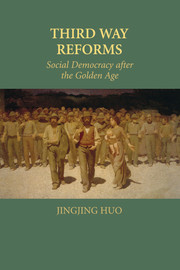Crossref Citations
This Book has been
cited by the following publications. This list is generated based on data provided by Crossref.
Jun, Uwe
2010.
Die Große Koalition.
p.
299.
Howard, Christopher
2011.
What’s Left of the Left.
p.
188.
Moschonas, Gerassimos
2011.
What’s Left of the Left.
p.
50.
Cronin, James
Ross, George
and
Shoch, James
2011.
What’s Left of the Left.
p.
1.
Teixeira, Ruy
2011.
What’s Left of the Left.
p.
162.
2011.
What’s Left of the Left.
p.
363.
Cronin, James
2011.
What’s Left of the Left.
p.
116.
Goldhammer, Arthur
and
Ross, George
2011.
What’s Left of the Left.
p.
141.
Pontusson, Jonas
2011.
What’s Left of the Left.
p.
89.
Ross, George
2011.
What’s Left of the Left.
p.
319.
Berman, Sheri
2011.
What’s Left of the Left.
p.
29.
De Waele, Jean-Michel
and
Soare, Sorina
2011.
What’s Left of the Left.
p.
290.
Jenson, Jane
2011.
What’s Left of the Left.
p.
241.
Pérez, Sofía A.
2011.
What’s Left of the Left.
p.
265.
Shoch, James
2011.
What’s Left of the Left.
p.
210.
Cronin, James
Ross, George
and
Shoch, James
2011.
What’s Left of the Left.
p.
343.
2012.
Trans-Americanity.
p.
213.
2012.
Trans-Americanity.
p.
152.
Branco, Rui
Fernandes, Tiago
Cancela, João
and
Dias Coelho, Thierry
2012.
Démocratisation et société civile. Leçons de l'expérience portugaise.
Pôle Sud,
Vol. n° 37,
Issue. 2,
p.
9.
2012.
Trans-Americanity.
p.
239.





